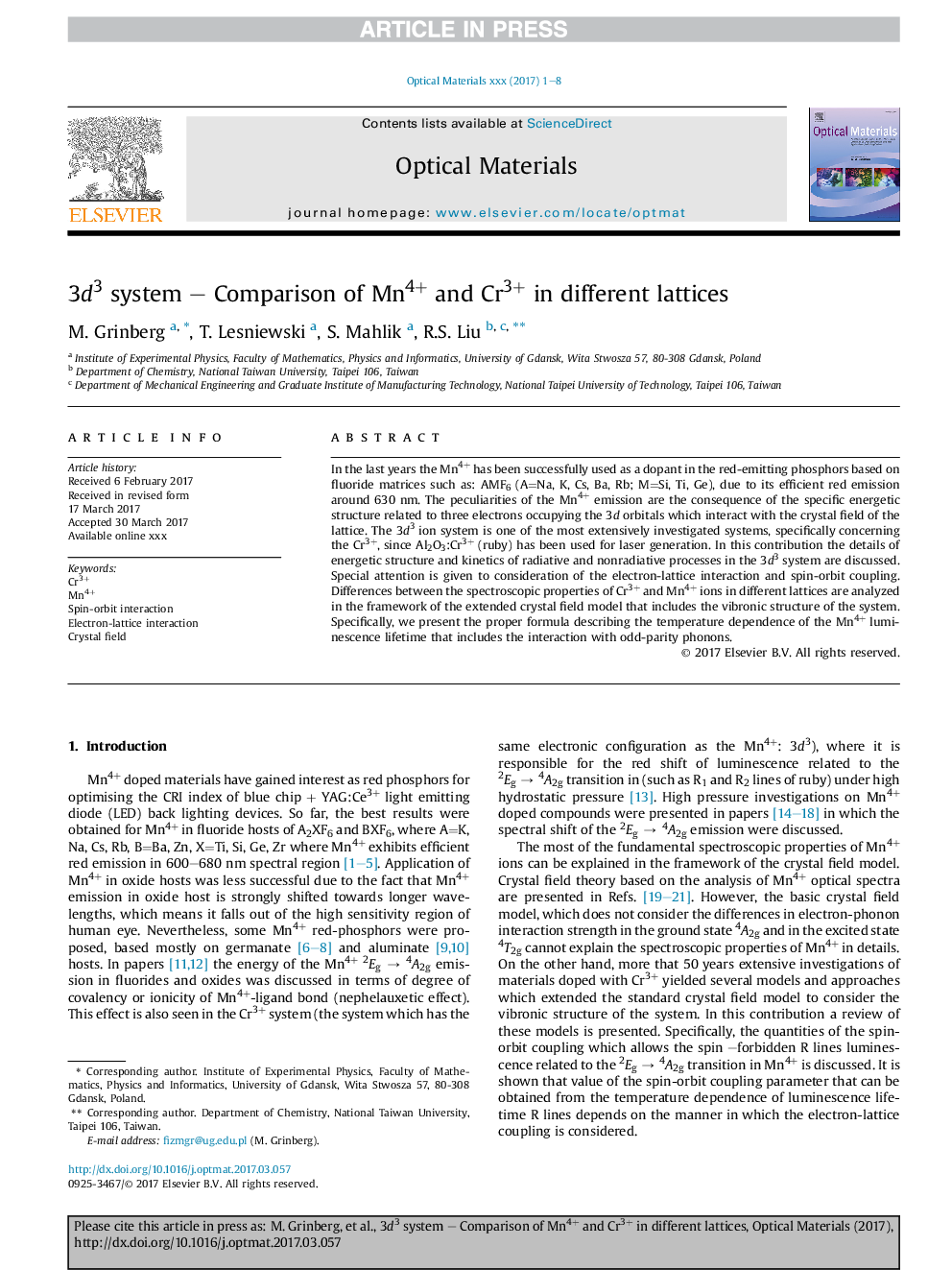| Article ID | Journal | Published Year | Pages | File Type |
|---|---|---|---|---|
| 7907941 | Optical Materials | 2017 | 8 Pages |
Abstract
In the last years the Mn4+ has been successfully used as a dopant in the red-emitting phosphors based on fluoride matrices such as: AMF6 (A=Na, K, Cs, Ba, Rb; M=Si, Ti, Ge), due to its efficient red emission around 630Â nm. The peculiarities of the Mn4+ emission are the consequence of the specific energetic structure related to three electrons occupying the 3d orbitals which interact with the crystal field of the lattice. The 3d3 ion system is one of the most extensively investigated systems, specifically concerning the Cr3+, since Al2O3:Cr3+ (ruby) has been used for laser generation. In this contribution the details of energetic structure and kinetics of radiative and nonradiative processes in the 3d3 system are discussed. Special attention is given to consideration of the electron-lattice interaction and spin-orbit coupling. Differences between the spectroscopic properties of Cr3+ and Mn4+ ions in different lattices are analyzed in the framework of the extended crystal field model that includes the vibronic structure of the system. Specifically, we present the proper formula describing the temperature dependence of the Mn4+ luminescence lifetime that includes the interaction with odd-parity phonons.
Related Topics
Physical Sciences and Engineering
Materials Science
Ceramics and Composites
Authors
M. Grinberg, T. Lesniewski, S. Mahlik, R.S. Liu,
